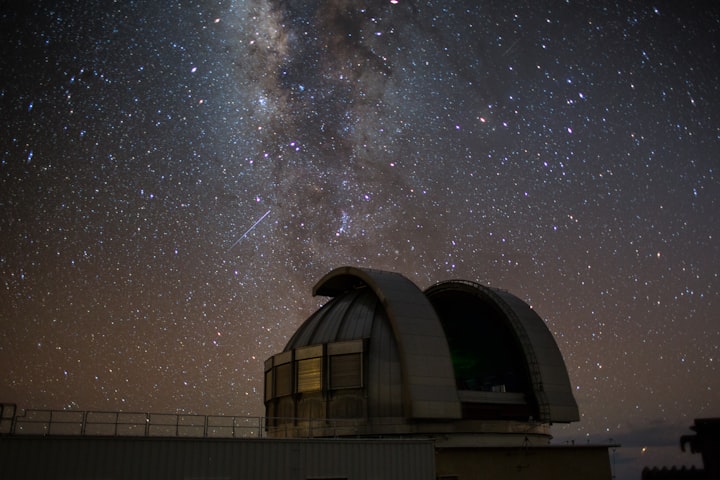Introduction
Becoming an astronaut is a lifelong dream for many, representing the pinnacle of human exploration and achievement. However, the journey to space is no easy feat. Astronaut candidates undergo rigorous training and must possess a unique combination of skills, qualities, and qualifications. This article provides an in-depth look at the training process and requirements for aspiring astronauts, offering insights into the physical, mental, and technical preparations necessary to embark on a career beyond Earth's atmosphere.
The Astronaut Selection Process
The selection of astronauts involves a highly competitive and comprehensive process. Space agencies carefully evaluate candidates based on their academic qualifications, professional experience, physical fitness, psychological suitability, and adaptability to the demanding and dynamic nature of space exploration. The selection process typically includes written applications, interviews, medical examinations, and intensive evaluations.
Academic and Professional Background
Astronaut candidates are typically required to have a strong educational foundation in science, technology, engineering, or mathematics (STEM) fields. A bachelor's degree in a relevant discipline is often a minimum requirement, although advanced degrees are also valued. Furthermore, candidates with diverse professional backgrounds, such as engineering, medicine, military service, or research, bring valuable expertise to space missions.
Physical Fitness and Endurance
Physical fitness is a critical aspect of an astronaut's training and performance in space. Candidates undergo thorough medical evaluations to ensure they are in excellent health and free from any conditions that could be exacerbated by the physical demands of spaceflight. The selection process assesses candidates' strength, cardiovascular fitness, endurance, and the ability to adapt to changing gravitational environments.
Survival and Wilderness Training
Astronauts must be prepared for various contingencies, including emergency landings or survival situations. Survival and wilderness training equip candidates with essential skills, such as wilderness navigation, shelter construction, fire building, and medical basics. These skills are crucial in remote or isolated environments, ensuring the safety and survival of astronauts in unforeseen circumstances.
Astronaut Training Facilities and Simulators
To simulate the conditions of spaceflight, astronaut candidates undergo training in specialized facilities and simulators. These include neutral buoyancy pools, where astronauts practice tasks in an underwater environment that mimics microgravity conditions, and centrifuges, which simulate the G-forces experienced during launch and reentry. Simulators for spacecraft controls, robotic operations, and emergency procedures are also used to enhance candidates' skills and readiness.
Psychological and Mental Resilience
Space missions demand exceptional psychological and mental resilience from astronauts. Candidates undergo psychological assessments to evaluate their ability to handle stress, isolation, confinement, and long-duration missions. They must demonstrate effective communication skills, teamwork, problem-solving abilities, and the capacity to adapt to rapidly changing circumstances. Psychological support and counseling are provided throughout training and during space missions.
Spacecraft Systems and Operations
Astronaut candidates receive extensive training in spacecraft systems and operations to ensure they are proficient in all aspects of spaceflight. They learn about spacecraft design, navigation, life support systems, spacewalks, robotics, and emergency procedures. Training includes simulated missions, where candidates practice mission-critical tasks in realistic mission scenarios, fostering their ability to handle complex operations in space.
International Collaboration and Language Skills
Space exploration is often an international endeavor, necessitating collaboration among astronauts from different countries. Candidates are expected to have excellent communication skills, including fluency in the primary language used for space missions (typically English). Proficiency in additional languages can be advantageous, enhancing teamwork and fostering effective communication in multinational crews.
Teamwork and Leadership
Effective teamwork and leadership skills are vital for successful space missions. Astronaut candidates undergo training that emphasizes collaboration, decision-making, conflict resolution, and effective communication within diverse teams. They learn to work harmoniously with colleagues from diverse backgrounds, fostering an environment of mutual support, trust, and cooperation.
Conclusion
The path to becoming an astronaut is arduous, demanding unwavering dedication, exceptional qualifications, and the ability to excel in the face of physical, mental, and technical challenges. Astronaut training encompasses a broad spectrum of skills, from academic and technical proficiency to physical fitness, psychological resilience, and effective teamwork. The astronauts of today are the result of rigorous selection processes, comprehensive training, and a passion for exploration. As we continue to push the boundaries of space exploration, the training and qualifications for aspiring astronauts will evolve to meet the demands of future missions, ensuring that those who venture beyond our planet are well-prepared for the extraordinary experiences that lie ahead.
About the Creator
Tatsuki
Space, Quantitative Finance, Crypto, Blockchain, Langurages, etc.
Personal Blog (Japanese): https://www.jinsei-100nenn.com/
AI Art Project: Space Cat AI (on Instagram)
Follow me:







Comments
There are no comments for this story
Be the first to respond and start the conversation.